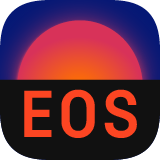Danny van Dyk 20 May 2018
I have just released version 0.2, which you can find here.
Changes since version 0.1.1 include:
- applying various fixes to the installation instructions in the manual;
- adding form factors, observables and signal PDFs for the decays Λb → Λc(2595)ℓν and Λb → Λc(2625)ℓν
- extending the existing BSZ2015 form factor parametrization to B→&rho and B→D* transitions
- adding observables for the decay B→D*ℓν in generic New Physics models
- replacing the built-in library of experimental constraints with YAML files that are loaded at run time;
- switching to a nicer plotting framework for the
eos-plot-1d and eos-plot-2d clients;
- fixing a bug in the hierarchical clustering code that caused bad initial proposals for the first Population Monte Carlo (PMC) step;
- fixing bugs in the
configure script regarding non-standard installation locations;
- adding support to propagate uncertainties from Markov Chain Monte Carlo (MCMC) results.
Contributors of these changes are:
- Frederik Beaujean
- Christoph Bobeth
- Marzia Bordone
- Elena Graverini
- Ahmet Kokulu
- Danny van Dyk
Danny van Dyk 02 May 2018
If you are interested in discussions about current and future EOS development,
you are invited to join the EOS developers mailing list at Google Groups.
Danny van Dyk 15 Apr 2018
I have just released version 0.1.1, which you can find here.
Changes since version 0.1 include:
- adding support for multidimension numerical integrals via the Cubature algorithm;
- implementing model-indepdent NP contributions in B→Dℓν decays;
- exporting the Model class to the Python interface;
- getting rid of the templated LogLikelihoodBlock::MultivariateGaussian,
and replacing it with a class that handels the parameter size at run time.
- providing active support for building and using EOS on MacOS X;
- updating the manual and completing the part on software documentation, with help
by Daniel Greenwald;
Contributors of these changes are:
- Frederik Beaujean
- Ahmet Kokulu
- Danny van Dyk
Danny van Dyk 15 Apr 2018
Thanks to a gratuitous donation of an iMac computer by Prof. Leo van
Hemmen, we can now actively
support building and using EOS on Mac OS X. We thank Professor van Hemmen very
much for his donation!
The test hardware in use is limited to Mac OS 10.11 (El Capitan). We would be
happy to receive reports about EOS builds on more recent Mac OS versions. The
installation on MacOS via the Homebrew package manager is documented in the
manual. The minimal commands necessary to build the most
recent development version are
brew tap eos/eos
brew install --HEAD eos
Danny van Dyk 24 Mar 2018
In order to speed up build time of our TravisCI test cases, docker images
with the EOS build-time dependencies pre-installed are available over at
the docker hub in
eoshep/build-essentials.
These are used as for CI testing as of commit 21f61a28.
Even though it is a small annoyance that docker does not permit three-letter organization
names, hence the eoshep name.
You can pull these images as you would pull any docker image using either
docker pull eoshep/build-essential:xenial
or
docker pull eoshep/build-essential:bionic
The source files for building these images are kept here.
Please feel free to contribute your own docker files for whatever architecture you build
EOS on.


